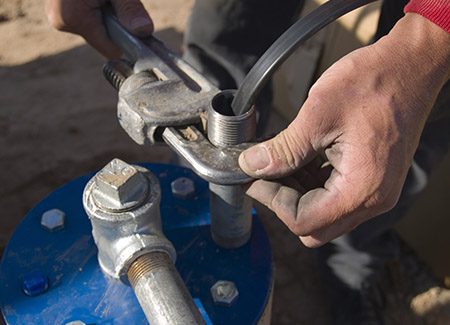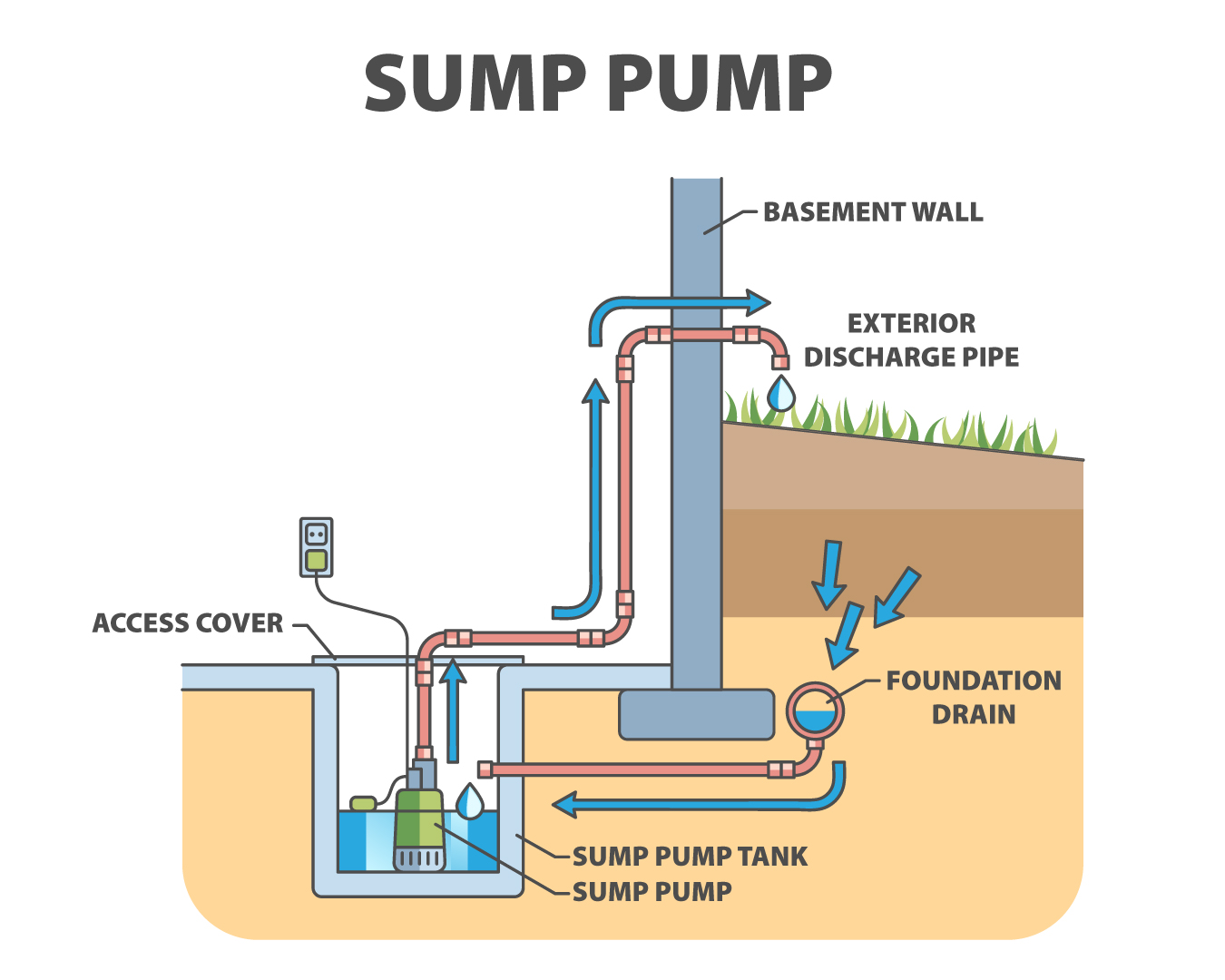Seamless Well Pump Replacement: Restoring Your Water System with Accuracy
Seamless Well Pump Replacement: Restoring Your Water System with Accuracy
Blog Article
Comprehending the Secret Parts of Effective Water Filtration Solutions

Importance of Water Filtering Systems
Water purification systems play an essential role in guaranteeing accessibility to safe and tidy drinking water by properly eliminating contaminants and contaminations. These systems are necessary in attending to the growing worries over water top quality and the possible health and wellness threats related to eating contaminated water. By utilizing different filtering mechanisms such as reverse osmosis, turned on carbon, and UV sterilization, water purification systems can successfully eliminate dangerous substances like microorganisms, infections, hefty steels, and chemicals from the water supply.
Moreover, water purification systems aid to enhance the taste and smell of water by getting rid of chlorine, sediments, and various other toxins that can impact its quality. Water Treatment. This enhancement in water high quality not just makes it more palatable however additionally encourages people to drink an ample quantity of water daily, promoting better hydration and overall health and wellness
Kinds of Filtration Elements

Physical filters are developed to literally stress out pollutants from the water. These filters can be constructed from products like ceramic, carbon, or even sand, and they work by trapping fragments larger than the filter's pores as water goes through.
Chemical filters use different chemical processes to get rid of pollutants from the water. Examples consist of triggered carbon filters, which adsorb contaminations, and reverse osmosis membrane layers, which make use of stress to different impurities from the water.
Organic filters utilize living microorganisms like algae or microorganisms to damage down raw material and contaminants in the water. These filters are usually used in wastewater therapy plants or all-natural water purification systems.
Understanding the various types of purification elements is important for picking the most ideal water filtering system for certain purification requirements.
Function of Sediment Filters
Debris filters play an important function in water purification systems by successfully recording solid fragments suspended in the water. These filters are normally the very first line of defense in a filtration system, removing larger bits such as sand, silt, dust, and rust before the water relocates via finer purification phases. By trapping these sediments, the filters stop them from getting to downstream elements, thus prolonging the life expectancy and efficiency of the whole system.
The function of debris filters is important in maintaining water high quality and securing sensitive devices from damages triggered by debris. Furthermore, by getting rid of visible bits, debris filters enhance the clearness and taste of the water. Frequently cleaning up or replacing sediment filters is important to guarantee optimal efficiency. Disregarding this upkeep can result in obstructing, reduced water flow, and compromised filtering performance. On the whole, sediment filters are important components that contribute significantly to the performance of water filtration systems.
Function of Triggered Carbon Filters
Playing a critical role in water purification systems, turned on carbon filters contribute in getting rid of impurities and pollutants from the water supply. These filters are developed to adsorb and trap a wide variety of toxins, consisting of chlorine, unstable organic substances (VOCs), pesticides, and herbicides. The activated carbon product has a big surface, permitting the efficient capturing of browse this site contaminants through a procedure called adsorption. As water goes through the filter, the turned on carbon holds and attracts onto the impurities, making certain that the water that appears on the various other side is cleaner and more secure for consumption.
Triggered carbon filters are very reliable at boosting the preference and smell of water by minimizing chemicals that can affect its quality. Due to their adaptability and integrity, triggered carbon filters are a crucial element in guaranteeing that water is detoxified to the highest criteria prior to getting to customers.
Recognizing Reverse Osmosis Equipments
Reverse osmosis systems are sophisticated water filtration systems that use an advanced process to eliminate contaminants and contaminations from drinking water. These systems work by using stress to the water, requiring it via a semi-permeable membrane. This membrane layer acts as a barrier, enabling only pure water particles to pass through, while blocking bigger particles such as minerals, chemicals, and other contaminations. Therefore, the water that appears on the other side is substantially cleaner and more secure for intake.
One secret benefit of reverse osmosis systems is their capability to get rid of a vast array of contaminants, consisting of heavy metals, find more info dissolved viruses, solids, and bacteria. This makes them extremely reliable in enhancing the general top quality and safety and security of drinking water. Furthermore, reverse osmosis systems are relatively low-maintenance and can be set up under the sink or in a main filtering system, offering practical access to clean water throughout the household. In general, understanding exactly how reverse osmosis systems work can help individuals make notified decisions about their water filtering requirements.
Verdict
To conclude, effective water purification systems are vital for ensuring tidy and secure drinking water. The essential elements of these systems consist of debris filters, turned on carbon filters, and reverse osmosis you can check here systems. By comprehending the feature and duty of each part, people can make educated choices when choosing a water purification system. It is essential to prioritize the high quality of water in order to promote overall health and wellness.
Water filtration systems play an essential role in making certain accessibility to clean and secure alcohol consumption water by effectively eliminating contaminants and pollutants. By utilizing various filtering mechanisms such as reverse osmosis, triggered carbon, and UV sterilization, water filtration systems can efficiently eliminate damaging compounds like microorganisms, infections, heavy steels, and chemicals from the water supply.
Debris filters play an essential function in water filtration systems by successfully catching solid bits put on hold in the water (Water Softeners).Playing a critical duty in water filtering systems, turned on carbon filters are important in eliminating pollutants and pollutants from the water supply.Reverse osmosis systems are advanced water filtering systems that employ an innovative procedure to remove contaminants and contaminations from alcohol consumption water
Report this page